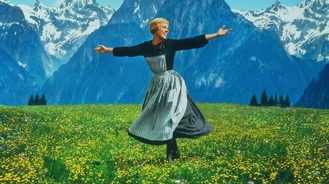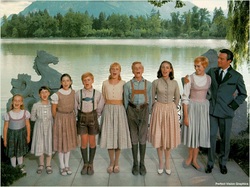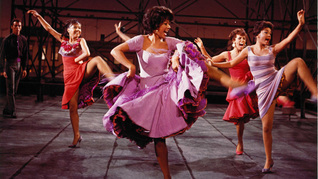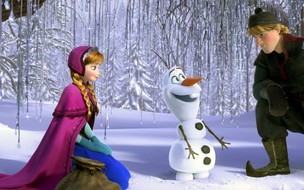
I discussed in a previous article about the importance of the film musical Annie on people’s childhoods and what it teaches us. However, this next Straight on Till Morning topic will be split into two sections over two weeks, and will focus on the impact of many, many musicals (which is why this will be broken down into two articles.)

This film presents a clear choice between right and wrong. It sets Nazis against the lovable Julie Andrews and Christopher Plummer. The film was very important at the time of release (1965.) 20 years after the end of the Second World War, it boldly spoke out against Nazism, portrayed it as the horror that it was and showed characters that actively went against the Nazi regime and its morals. It was not just a bold statement politically, the musical side of it juxtaposed against the serious storyline made it more fun and the story more bearable and less hard-hitting, making it easier to watch for a younger audience. It conveys well the importance of a love for music, family, life, freedom, and the love between two people, and is a film that so many have watched and so many love.

West Side Story transport’s Shakespeare’s Romeo and Juliet to 1960’s New York, and, on its release on stage, it broke all of the rules of theatre productions, people killing each other, constant attention to dancing and dissonant songs sung about tragic plot points. But why is it important to our childhoods? West Side story presents somewhat more “entertaining” version of the tragic love story originally penned by Shakespeare, a version that would appeal to teenagers more (although Leonardo DiCaprio in the 1996 movie did win the hearts of many teenage girls.) But it has many of the lessons that Shakespeare’s play held so dear. That feuding doesn’t get you anywhere and more than likely will end up in tragedy/something going wrong, that if two people find love, it is their decision and their life and people shouldn’t meddle in that. You shouldn’t be fooled by prejudice, and that love knows no bounds.

Now let’s jump forward to modern-time musicals. Frozen (2013) is an animated musical produced by Disney and it won two Academy Awards, one BAFTA and one Golden Globe. Its primary audience is children (as it is a PG animated film produced by Disney) and so, like many Disney films, it has had a massive influence on the younger part of the world’s population. It’s most popular song, Let it Go, reached Platinum in 3 countries, Gold in the UK and topped some charts, as well as won an Academy Award. The film became the fifth highest grossing film of all time and the highest grossing animated film. The frenzy to buy Frozen merchandise was compared to the Cabbage Patch Kids craze of the 1980’s. Frozen is statistically a very popular film, and this is proved by the extreme amounts of kids buying endless amounts of frozen costumes, stuffed Olaf’s and singing Let it Go repeatedly. What are the lessons learnt in Frozen? The power of sacrifice (Anna sacrifices herself for Elsa and in the end, they both turn out ok), don’t be so trusting (i.e. don’t get engaged to someone you just met that day), and the need to have self control (if you don’t, you may accidentally freeze your sister’s head, and then her heart, cause an eternal winter etc.) Though the children probably don’t see these as that important, they are more interested in the pretty dresses and the cuteness of Olaf and Sven.

 RSS Feed
RSS Feed
